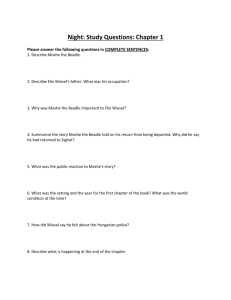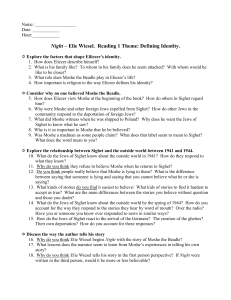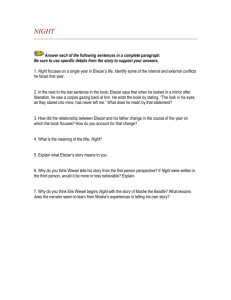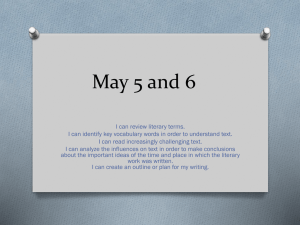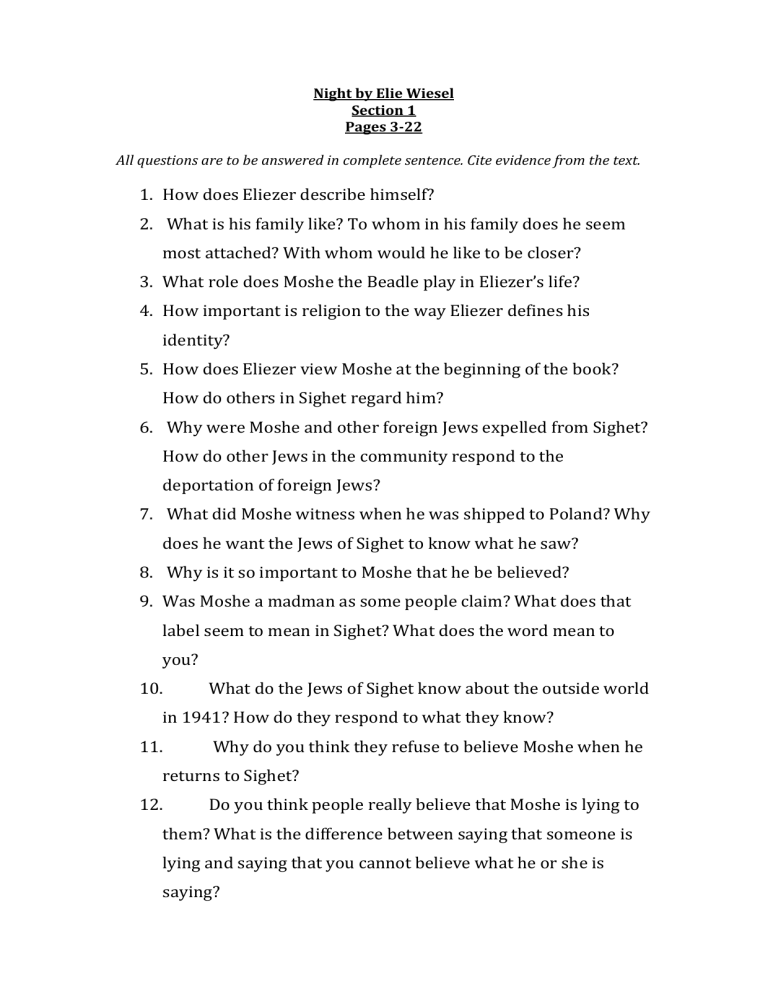
Night by Elie Wiesel Section 1 Pages 3-22 All questions are to be answered in complete sentence. Cite evidence from the text. 1. How does Eliezer describe himself? 2. What is his family like? To whom in his family does he seem most attached? With whom would he like to be closer? 3. What role does Moshe the Beadle play in Eliezer’s life? 4. How important is religion to the way Eliezer defines his identity? 5. How does Eliezer view Moshe at the beginning of the book? How do others in Sighet regard him? 6. Why were Moshe and other foreign Jews expelled from Sighet? How do other Jews in the community respond to the deportation of foreign Jews? 7. What did Moshe witness when he was shipped to Poland? Why does he want the Jews of Sighet to know what he saw? 8. Why is it so important to Moshe that he be believed? 9. Was Moshe a madman as some people claim? What does that label seem to mean in Sighet? What does the word mean to you? 10. What do the Jews of Sighet know about the outside world in 1941? How do they respond to what they know? 11. Why do you think they refuse to believe Moshe when he returns to Sighet? 12. Do you think people really believe that Moshe is lying to them? What is the difference between saying that someone is lying and saying that you cannot believe what he or she is saying? 13. What do the Jews of Sighet know about the outside world by the spring of 1944? How do you account for the way they respond to the stories they hear by word of mouth? Over the radio? 14. How do the Jews of Sighet react to the arrival of the Germans? The creation of the ghettos? Their own deportation? How do you account for these responses? 15. What were the edicts forced by the Germans on the Jews? 16. Why do you think Elie Wiesel begins Night with the story of Moshe the Beadle? 17. What lessons does the narrator seem to learn from Moshe’s experiences in telling his own story? 18. Why do you think Elie Wiesel tells his story in the first person perspective? If Night were written in the third person, would it be more or less believable? Criticical Vocabulary Research and define the following words for better understanding of the text. Page 3: 1. shtibl 2. penury 3. waiflike 4. kabbalah Page 5: 1. Zohar Page 6: 1. Gestapo Page 8: 1. Zionism Page 9: 1. Anti-Semitic 2. Billeted Page 11: 1. Jewish ghettos Page 12: 1. Shavout
